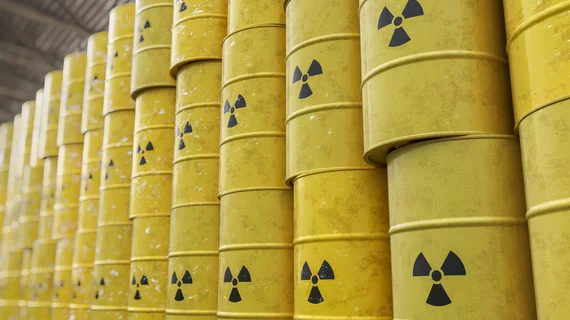Imaging leaders warn of possible Mo-99 supply disruptions due to COVID-19
Imaging leaders in the United States are warning of possible shortages of a crucial isotope needed for diagnostic imaging because of the coronavirus crisis.
In an April 1 alert to members, the American Society of Nuclear Cardiology said its monitoring supply shortages of Mo-99 “more closely than ever” during the pandemic. The vigilance comes following an announcement from Nuclear Medicine Europe that halted flights in and out of South Africa recently interrupted a bulk shipment of the material.
“Other options, such as charter flights, are being explored,” ASNC advised members. “On a positive note, [Nuclear Medicine Europe] said that other reactors have been able to maintain operation and production while protecting staff with additional measures,” the group added.
The Society of Nuclear Medicine and Molecular Imaging similarly notified its members on March 31. And the ASNC’s post follows an earlier update from the group mid-March.
Leaders with the cardiology society said they are also monitoring recommendations from the Centers for Disease Control and Prevention and World Health Organization and are remaining in “close contact” with industry partners regarding the potential for travel bans to further disrupt Mo-99 deliveries. More than 80% of nuclear imaging procedures in the U.S. require Technetium-99m—which is derived from its parent radioisotope Mo-99, according to the Food and Drug Administration.
You can read the entire letter from Nuclear Medicine Europe here.

